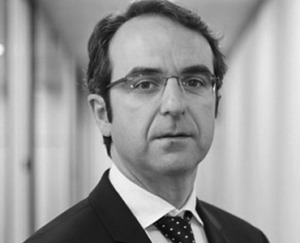JUNE 6, 2019
IESE Barcelona
Arnús i Garí, 3-7
08034 Barcelona
Our next Food and Beverage Industry Meeting aims to tackle industry challenges and trends in terms of their implications and the changes they generate. The food transition involves adapting not only to a new context, but also to a process that puts more pressure on decision-making in companies by challenging them to change and come up with original and imaginative strategic responses.
The agenda of the 23rd annual Industry Meeting contains several different topics for discussion. They include the transition of the global food system in the current economic and geopolitical context and in the next ten years.
We’ll also discuss food and health, the importance of nutrition and how the concept of nutrition has become inseparable from food. The interdependence of these two disciplines calls for new frameworks for collaboration, research and knowledge.
Another point for discussion will be the future of international trade and how the new reality in terms of trade agreements and tariffs presents enormous challenges for companies involved in internationalization processes. One session will therefore be set aside to focus on strategy, alliances and collaboration. We’ll speak with leading CEOs to understand their current agendas and especially what they expect their agendas to look like in the immediate future and in five years and ten years. We’ll explore how they expect the industry to evolve and progress, and how they lead their companies through this transition in terms of corporate responsibility. This is where the concept of sustainability becomes more relevant.
Finally, the annual Industry Meeting could not be held without understanding that consumers are immersed in a global process of urbanization and digitalization. Lifestyles and trends in consumption indicate that consumers are more informed, more digitized and pay greater attention to what they buy in terms of the product (natural, healthy ingredients) and the values they expect from distribution and the industry (ethical business models, environmentally friendly practices and animal welfare). Another clear trend highlights the importance of the shopping experience with the actual product in the store (concepts relating to convenience, little time, enjoying the shopping experience and the synergies created in physical spaces that combine personal leisure and local shopping opportunities, and where people work, have lunch and hold informal meetings). These experiences are often related to or identified with brands and the values they represent.
The 23rd Food and Beverage Industry Meeting, organized by IESE Business School and Deloitte, will take place on June 6, 2019 on IESE Business School’s Barcelona campus. Relevant figures from the business world, experts, academics, policy makers and regulators from Spain and the international community will provide a coherent analysis of the topics shaping the agenda in the food and beverage industry.
IESE Barcelona
Arnús i Garí, 3-7
08034 Barcelona
IESE Industry Meetings
tel: +34 93 253 43 36

Academic Director

Collaborating Director
| 08:30-09:00 | WELCOME AND REGISTRATION |
| 09:00-09:30 | OPENING SESSION AND PRESENTATION OF THE VADEMECUM
• Prof. Adrián Caldart, Academic Director of the Meeting, IESE Business School |
| 09:30-10:30 | HAS ECONOMIC GROWTH REACHED ITS LIMIT? REFORMS AND POLICIES FOR AN UNCERTAIN WORLD CONTEXT
The International Monetary Fund’s most recent estimates point to a slowdown and more moderate growth prospects for the coming year. The uncertainties associated with Brexit, the United States-China trade war and the behavior of emerging countries will provide the world economic and geopolitical backdrop for this debate, as well as the keys to understanding the current and future situation of the Spanish economy in the European and global context. • Prof. Javier Díaz Giménez, IESE Business School Moderator: Prof. Antonio Argandoña, IESE Business School |
| 10:30-11:15 | NUTRITION AND SUSTAINABILITY
The food and beverage industry has a fundamental role to play in challenges as important as demographic growth, technological innovation, urbanization and the unprecedented social change of the energy transition. • Shay Eliaz, Principal, Monitor Deloitte Moderator: Prof. J. Alfredo Martínez, Professor of Food Sciences and Physiology, University of Navarra and Food Director of the Precision Nutrition of IMDEA |
| 11:15-11:45 | Pausa-Café |
| 12:00-12:45 | THE INDUSTRY IN THE EUROPEAN UNION. PRIORITIES, POLICIES AND REGULATIONS
Food safety, waste, sustainability, job creation, nutrition and health are some of the main topics and priorities of the food and beverage industry. In the European Union, this industry represents more than four million people and 289,000 companies, 90% of which are small and medium-sized businesses. EU priorities and strategies will have an impact on the policies and regulations of the next ten years. This session will provide an opportunity to discuss these issues. Moderated / Presented by: |
| 12:45-14:00 | ENTREPRENEURIAL INITIATIVE AND FINANCING OF INNOVATION
The food and beverage industry has historically been characterized by its proximity to consumers, response to their needs and push for continuous process improvement. These drivers have made the industry more innovative and given it greater capacity for change and transformation. • Yolanda Cerdà, FMCG Innovation Observatory Manager, Institut Cerdà Moderador: Prof. Eduard Calvo, IESE Business School |
| 14:00-15:15 | Lunch /em> |
| 15:15-16:15 | AGRIBUSINESS. TRENDS, INNOVATION AND OPPORTUNITIES
Focusing on agriculture is a basic way of highlighting the entire value chain and understanding the industry and its capacity for transformation, as well as distribution based on proximity to consumers. The primary sector provides fertile ground for innovation and a wealth of opportunities associated with digitalization. Panel members will discuss the challenges and opportunities of agriculture and its importance in the value chain and the industry as a whole. • Fernando Clúa, Investment Director, Miura Private Equity Moderator: Prof. Adrián Caldart, IESE Business School |
| 16:15-17:00 | LIFESTYLE, BRANDS AND CONSUMER
Understanding consumers in a global era of urban living and digitalization has become a more important priority for companies. Lifestyles and trends in consumption indicate that consumers are more informed, more digitally savvy and pay greater attention to what they buy in terms of the product (natural, healthy ingredients) and the values they expect from distribution and the industry (ethical business models, environmentally friendly practices and animal welfare). Another clear trend highlights the importance of the shopping experience with the actual product in the store (concepts relating to convenience, limited time, enjoying the shopping experience and the synergies created in physical spaces that combine personal leisure and local shopping opportunities, and where people work, have lunch and hold informal meetings). These experiences are often related to or identified with brands and the values they represent. The session will offer a chance to discuss how to reach, transmit and earn the trust of consumers based on authenticity and brand management. • Telmo Pagalday Vergara, Content Manager & Digital Marketing, Pernod Ricard Moderated / Presented by: Carlos Holemans, Chief Creative Officer, Deloitte Digital |
| 17:00-17:15 | Break |
| 17:15-18:30 | RETHINKING PACKAGING AND THE PLASTICS INDUSTRY
New regulations, concern for the environment and consumers’ growing awareness have made the discussion of packaging and recycling a key item on the food and beverages industry agenda. Panel members and the main stakeholders will discuss this global challenge that calls for everyone’s involvement. • Cinta Bosch, Head of Sustainability, AECOC Moderator: Ignacio González Hernández, CEO, Grupo Nueva Pescanova and President, Ecoembes |
| 18:30-18.45 | CLOSING SESSION |
The fees for the 23 Food and Beverage Industry Meeting are:
General
IESE Alumni
IESE Members and Partners
Fee includes lunch.
Payment must be made prior to program attendance.
Places are limited and registrations are processed in strict order of receipt.
2018 · State of Play and Future Scenarios
2017 · Sustainable Growth Strategies: Challenges and Opportunities
2016 · A Global, Creative Look at Growth, New Markets and Change
2015 · The Road to 2025 and Beyond
2014 · The Four I-Engines of the Industry
2013 · Selling Across Continents
2012 · Growth in the recession. Examples for industry and retail
2011 · In search of added value: how to get consumers, margins and competitiveness back
2010 · Food wars: counterattack brands. Rebuilding the industry’s future